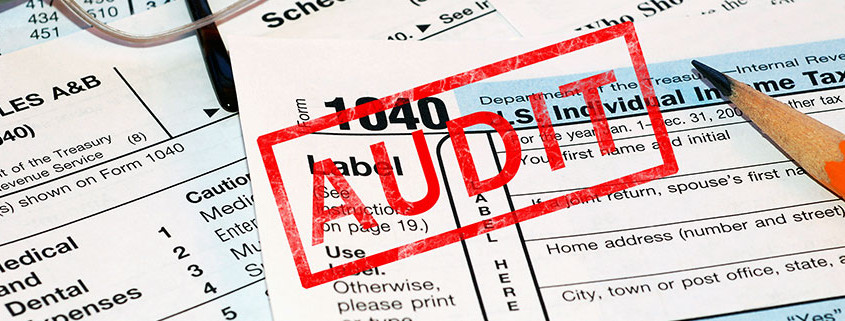Tax audits are rare. The average taxpayer has a 1-in-100 probability of being formally audited by the IRS in a given year. The odds of a tax audit rise if, among other things, you itemize deductions, report profits or losses on a home business or rental property, or have an income of $200,000 or more.
And the IRS conducts many more informal reviews for problems like math errors and mismatches between the income taxpayers show on their tax forms and what their employers and other income providers report. Those raise your chances of being contacted by the IRS closer to 7 in 100. But you can take steps that will help you survive a tax audit in some key areas.
Home-business owners using Schedule C and employees claiming unreimbursed expenses on IRS Form 2106 should scrupulously record telephone, travel, meal, and entertainment expenses for business.
Avoid deductions that can be personal in nature. They’re the first ones the IRS wil scrutinize in a tax audit. If you’re just starting a business, for instance, don’t expense research trips. Other tips:
- Is it a business or a hobby? Unless you can claim income periodically, don’t deduct a $1,200 Nikkor lens for the photography hobby you hope will some day pay off, especially if you get a W-2 from another job. A rough rule of thumb is to show a profit on Schedule C in at least two years out of every five.
- Define your home office. Applying too much of your home’s square footage toward a home business sends the wrong signal. And it should look like an office and be used exclusively for business.
If you own rental property, take care completing Schedule E for supplemental income and loss. How much you can deduct for expenses and losses depends on how actively involved you are in managing your property and how well you can prove it. Other tips to prevent a tax audit:
- Know when to depreciate. Repairs and new equipment that extend a property’s life or add to its value aren’t considered maintenance. Depreciate them over a number of years rather than expensing them in a single year.
- Document personal use. To fully deduct the expenses related to a vacation rental, you and family members can’t use the home more than 14 days, or 10 percent of the days the unit is rented at the market price, whichever is greater. If you own a second home that doubles as a rental, hold on to credit-card bills and travel documents in case you have to prove in a tax audit that you and your relatives stayed only for the allotted period.
See the Consumer Reports Income Tax Guide for more advice and tips on preparing, filing and saving on your income tax return.
Sums that stand out can raise suspicion. For example, deducting a large charitable contribution—say, $20,000—if your adjusted gross income is $40,000 is permissible by the IRS but might appear out of place.
Keep dated receipts for cash gifts of $250 or more and for noncash items you donate, such as furniture and clothes. If you give an item worth more than $500, you’ll need to fill out Form 8283. Donations worth more than $5,000 require a written appraisal. Check IRS Publication 561, “Determining the Value of Donated Property,” for details.
No matter what you’re deducting, always keep or scan original receipts. Your credit-card bill alone won’t necessarily identify the item or services purchased. And hold on to your records for at least seven years.
—Tobie Stanger
Original Article: http://finance.yahoo.com/news/protect-yourself-tax-audit-200000031.html
Isler Northwest LLC is a firm of certified public accountants and business advisors based in Portland, Oregon. Our local, regional, and global resources, our expertise, and our emphasis on innovative solutions and continuity create value for our clients. Our service goal at Isler NW is to earn our clients’ trust in us as their primary business and financial advisors.
Isler Northwest
1300 SW 5th Avenue
Suite 2900
Portland, Oregon 97201
Isler NW, Portland, OR, cpa firm, accounting services, small business accounting, tax services, Accountants, Portland, Oregon, tax, estate, planning, accounting, financial, reporting, CPA, CPA’s



